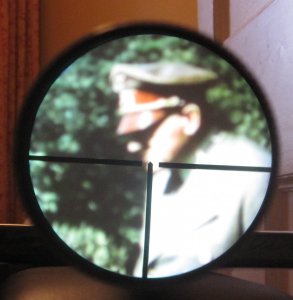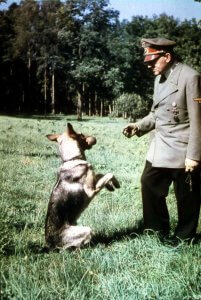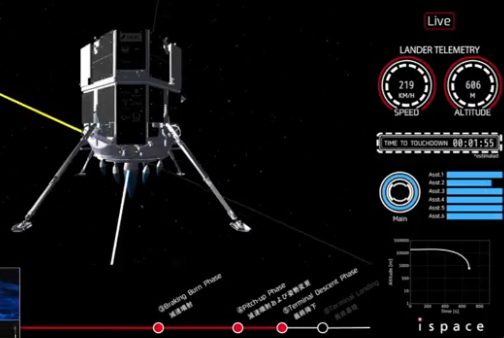Given recent events in Iraq and Iran, we ask the question: Is assassinating military, political, or even space leaders ever a good idea? The answer is: perhaps, if it saves millions of lives. But there can be downsides.
On the plus side, it is probably morally sounder to try to destroy a enemy nation’s political and military leadership rather than its entire population by war. Of course, not all these plans are successful – and some were quite comically poor. The CIA’s attempt to kill Cuba’s communist leader Fidel Castro with an exploding cigar being just one of many.

Is assassinating military leaders such as Hitler always good idea? Sometimes…but sometimes not. Courtesy: David Todd
Of course, the assassination of such a war leader might have the benefit of denying an enemy side a strategically important, even a war-winning, talent. It was for this reason that UK armed forces attempted to kill the World War II genius general Erwin Rommel with a commando raid on his house in Libya (unfortunately for the Brits he was out at the time).
That said, sometimes the converse can also be true. During World War II the British side also worked on Operation Foxley plan to kill Hitler with a sniper while he was walking his dog. They decided against once they realised he was actually a rubbish general (it was late in the war) and it would be more advantageous to leave him in place.
Space provides victims and methods
Of course the risk of assassination did not just run to political or military leaders. During the height of the space race during the late 1950s and early 1960s, it was partly the fear over potential assassination which was why the Soviet Union kept the identity of S.P. Korolev, its very talented chief space designer and architect of its early space programme, secret, only revealing it after his unfortunate death on the operating table in 1966. An actual example is space super gun expert Gerald Bull who was allegedly shot dead by silenced pistol by the Kidon assassination branch of the Israeli secret service Mossad, after they perceived the threat to Israel of his super-gun project (by then sponsored by Iraq) along with his ballistic missile re-entry vehicle work.
Space technology has sometimes been involved in assassinations. While satellites are often used to target individuals via the monitoring of GPS locations or via telephone communications as apparently happened in the US drone missile killing of Iranian Major-General Qasem Soleimani in January 2020, sometimes it is a derivative of the space hardware itself that has been used. The infamous radioactive poisoning of the KGB/FSB defector Alexander Litvinenko in 2006, was done using the nuclear isotope Polonium-210, previously uniquely used to power the Soviet Lunokhod unmanned Moon rover’s heater.
The Downsides
Whatever the method, there are, of course, downsides to assassination, however well-meaning the motive. The not-so-benign results can include severe retaliation causing casualties among the innocent, either by deliberate act, such as the razing of the town of Lidice in revenge for the assassination of evil Nazi German controller of Czechoslovakia, Reinhard “Hangman” Heidrich in 1942, by Czech agents of the British Special Operations Executive (SOE) in Prague; or, by unhappy accident, as has become recently apparent with Iran’s unintentional shooting down of a Ukrainian airliner.
There is also the major danger of conflict escalation, with terrible wars sometimes being started by such events e.g. the triggering World War by the assassination of the Austrian Archduke Franz Ferdinand in June 1914.
There are also counterproductive effects. The veneration of martyrdom and a sympathy for the deceased remain major political risks as initially happened over the assassination of Major-General Qasem Soleimani. Another example was how the US public’s rating of the assassinated US president John F. Kennedy rose significantly after his sniper assassination in November 1963.

Hitler killed millions of humans but was nice to his dog…well until he killed her too. Courtesy: Via EarthinTransition.org
Of course, religious types and pacifists hold that killing is never justified, either believing that the evil will get a heavenly retribution, whether in this world or the next, or hoping that somehow reason and dialogue will prevail instead.
On the latter note, it is, of course, true that killing another side’s leaders has a tendency to hamper diplomacy between states. It is, of course, against the United Nations Charter to assassinate another state’s leadership.
Others, however, prefer to take a more active line against evil, if only to save human lives. Thus, most people agree that the mass-murdering Adolf Hitler was a very evil man and that it was justified to try and kill him, so that millions of lives could be saved. While some on his own side tried to assassinate him, most famously by a bomb, in the end, he survived those attempts. And, as already mentioned, it was his military incompetence that saved him from the British sniper plan.
Hitler was not a nice man…not even to his dog
By the way, for those who thought Hitler could not be all bad given that he was, at least, nice to his dog, Blondie, well, they should realise that just before his suicide in April 1945 he had his poison cyanide capsules tested out on her. In the event, once he knew that the game was up, Hitler shot himself in the head while also swallowing the capsules, just to make doubly sure he was not captured alive by the Russians.
One final thing. Those who live by the sword will also die by the sword – or so the Bible suggests. That is, those those who employ assassination against their political and personal enemies, might well suffer the same fate. Certain world leaders on both sides of the fence should take note.






